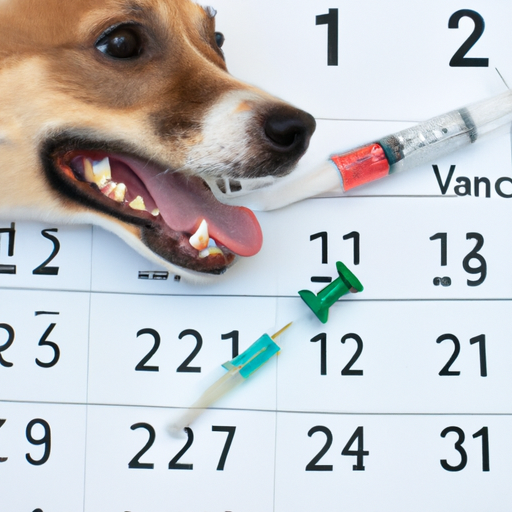Introduction
You love your dog, don’t you? You might even consider them a part of your family. You want to keep them healthy and safe, and you’re doing everything you can to ensure that. One of the most critical aspects of maintaining your dog’s health is ensuring they’re up to date on their rabies vaccine. But you might be asking yourself: “How long does a rabies vaccine last in dogs?”
Understanding Rabies
Rabies is a deadly disease caused by a virus that primarily spreads through a bite from an infected animal. In dogs, it can cause a variety of symptoms, including:
- Aggression
- Fever
- Hyperactivity
- Seizures
- Paralysis
Rabies Vaccination in Dogs: The Basics
Rabies vaccines are a crucial part of canine healthcare. The vaccine is designed to stimulate your dog’s immune system to fight off the virus should they ever come into contact with it. Here’s a basic timeline for a dog’s rabies vaccination:
- Puppies as young as 12 weeks can be vaccinated.
- They require a booster one year later.
- After the first booster, dogs need a booster shot every one to three years, depending on the type of vaccine used and local laws.
| Age of Dog | Vaccine Due |
|---|---|
| 12 weeks | First vaccine |
| 1 year | First booster |
| Every 1-3 years | Regular boosters |
The Lifespan of Rabies Vaccines
The length of time a rabies vaccine lasts can depend on a variety of factors, including the type of vaccine used and the dog’s overall health. Some vaccines are labeled for one year and others for three years, but studies suggest that most vaccines protect against rabies for at least three years.
The Importance of Regular Boosters
Even if the rabies vaccine can last up to three years, it’s crucial that you stick to the schedule provided by your vet. Regular boosters provide the best protection against this deadly disease.
FAQs
Q: Can a vaccinated dog get rabies?
A: While the vaccine is extremely effective, no vaccine is 100% foolproof. However, a vaccinated dog is far less likely to contract rabies than an unvaccinated dog.
Q: Are there side effects to the rabies vaccine?
A: Side effects are rare but can include mild fever, loss of appetite, and swelling at the vaccination site. Severe reactions are rare.
Q: Can I vaccinate my dog against rabies at home?
A: No, rabies vaccines should only be administered by a licensed vet to ensure it’s done correctly and legally documented.
Remember, when it comes to your dog’s health, it’s always best to consult with a professional. Your vet can provide you with the most accurate information based on your dog’s health history and lifestyle.



